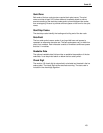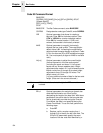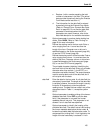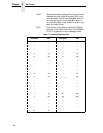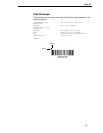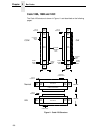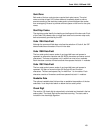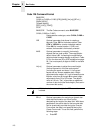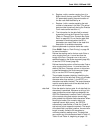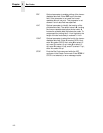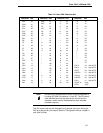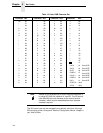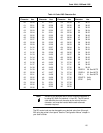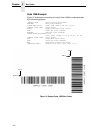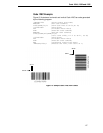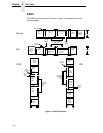
Code 128A, 128B and 128C
111
b. Replace
n
with a number ranging from 1 to
512 to identify the bar code field. The
SR
and
SC
parameters specify the exact location of
the bar code field identified by
n
.
c. Replace
L
with a number equaling the total
number of characters in the field. (The actual
data provided dynamically during the Execute
Form mode can be less than
L
.)
d. The information for the data field is entered
dynamically during the Execute Form mode.
(Refer to “Execute Form: Dynamic Bar Code
Data” on page 63.) Do not use the
data field
parameter to enter data when the BF
n
;
L
parameters are used. Refer to the
data field
description for available characters.
DARK Optional parameter to produce darker bar codes.
Enter DARK. Refer to “Dark Printing” on page 28
for more information.
SR
Defines the starting row for the bar code. Enter a
value ranging from row 1 to one less than the
length of the form. Character row or dot row is
specified based on the Scale command (page 83),
or use the CP.DP format (page 26).
SC
Defines the starting column of the bar code. Enter a
value ranging from column 1 to one less than the
width of the form. Character column or dot column
is specified based on the Scale command (page
83), or use the CP.DP format (page 26).
(D)
The printable character (delimiter) identifying the
start and finish of the data field. Enter any printable
character other than a slash (/), the SFCC, or a
character used within the data. The same character
must be used at both ends of the data field, but it
will not print with the data.
data field
Enter the data for the bar code. A null data field (no
characters) is permitted. Whenever a string of 4 or
more contiguous numeric digits are detected, the
IGP/PGL automatically inserts a Code C at the start
of the numeric string and outputs numeric digit
pairs packed into single bar code characters. When
the string is broken (non-numeric data or an
unpaired numeric digit occurs), the IGP/PGL
automatically inserts either a Code A or Code B
and returns to their respective symbols. The length
of the data field is variable; however, the maximum
length is usually limited to 32 characters to
minimize potential reading errors. The data field
can contain any of the characters listed in Table 12,
Table 13 and Table 14, beginning on page 113.



